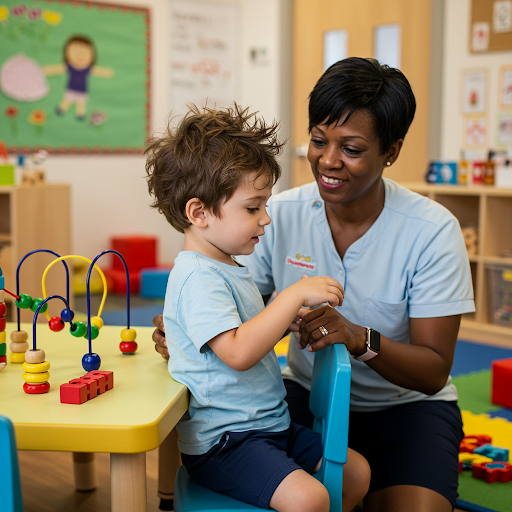Responsive caregiving plays a crucial role in the learning process, especially in early childhood and educational settings. This post convey the information and techniques on responsive caregiving and the importance of support in learning process.

Table of Content
- Understanding Responsive Caregiving
- The Learning Process and Responsive Caregiving
- Strategies for Implementing Responsive Caregiving in Learning Environments
- Conclusion
Responsive care refers to an approach where caregivers, educators, and parents actively engage with individuals by recognizing and responding to their needs, emotions, and interests. The supports from different stakeholders create a strengthening base mark in diversified areas like social, emotional and cognitive development.
Understanding Responsive Caregiving
Responsive care is based on the principle of attentiveness, warmth, and consistency. It involves actively listening to learners, observing their cues, and providing appropriate support to encourage growth. This concept is especially significant in early childhood education, where secure attachments between caregivers and children lead to better learning outcomes.
Key elements of responsive care include:
- Sensitivity to Needs: This means caregivers acknowledge the physical and emotional needs of children and extend support to them as soon as possible.
- Consistent and Predictable Interactions: A stable and nurturing environment builds trust and enhances learning.
- Encouragement and Support: Providing motivation and reinforcement helps learners gain confidence and resilience.
- Adaptability: Adjusting teaching and caregiving strategies to meet the unique needs of each learner.
The Learning Process and Responsive Caregiving
The learning process is significantly influenced by the level of responsive care a learner receives. Here’s how it contributes to different aspects of development:
- Cognitive Development
- Responsive caregivers make the situation of a stimulating environments and thus children can be excited to explore and problem-solving.
- Children get the opportunity to be involved with meaningful conversations and eventually language and communication skills is being promoted.
- Providing constructive feedback helps learners develop critical thinking abilities.
- Emotional and Social Development
- The trustworthy relationship with caregivers accelerate children’s emotional regulation and resilience.
- Positive interactions teach empathy, cooperation, and conflict resolution.
- Encouraging social engagement enhances interpersonal skills and teamwork.
- Physical and Motor Skills Development
- Providing opportunities for movement and exploration strengthens motor skills.
- Ensuring a safe and engaging environment allows for active learning through play.
- Responsive encouragement promotes persistence and effort in physical activities.
Strategies for Implementing Responsive Caregiving in Learning Environments
Educators and caregivers can integrate responsive care into the learning process by:
- Active Listening: Paying close attention to verbal and non-verbal cues to understand learners’ needs.
- Individualized Learning Approaches: Adapting teaching methods to align with each learner’s pace and preferences.
- Providing Emotional Support: Validating emotions and offering reassurance to build self-esteem.
- Encouraging Exploration: Creating a safe space for curiosity and hands-on learning experiences.
- Modeling Positive Behaviors: Demonstrating kindness, patience, and problem-solving skills. You can go for more learning issues on Responsive Care. To do this Click here.
Conclusion on the thought of Responsive Caregiving
Responsive caregiving is fundamental to an effective learning process. Children’s social, emotional and cognitive skills are ensured by creating a nurturing and responsive environment by the caregivers and teachers. Implementing responsive care practices enhances learning experiences, leading to well-rounded and confident individuals. The integration of sensitivity, adaptability, and consistent support ensures that every learner reaches their full potential. If you need, you can get more information on Responsive Care. Click here.
Pingback: Parent Family and Children Build the Alluring Cornerstones of Society - ECD Explorer
Pingback: The Importance of Responding to Baby is Captivating Needs 25 - ECD Explorer